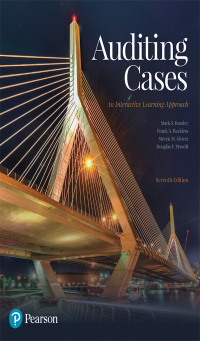Question
Read the passage below. Based on your reading assignment, please answer the two-tiered question below. Incorporate your academic opinion, which should be supported by your
Read the passage below. Based on your reading assignment, please answer the two-tiered question below. Incorporate your academic opinion, which should be supported by your research findings rather a laments response. You must cite your references.
1. Police officers complain that a citizen review board is not needed, and that citizens do not understand the police role and therefore cannot be objective when investigating the police. Does this opinion hold water?
2. Citizens complain that there should be a citizen review board to investigate allegations of police misconduct. Citizens' groups even allege that internal affairs officers cover up for their own. Should the police be allowed to police themselves?
3. Using the web give an example of a case where the use of a body camera exonerated a police officer of a citizen complaint or sustained the complaint of the citizen. Should body cameras be made mandatory for all uniformed police officers? Why or why not?
Overview - Reading Assignment
Many police officers complain that the media overdoes coverage of corrupt or brutal police officers. Newscast lead stories often deal with law enforcement issues. Police officers do face ethical dilemmas every day. Every situation is different and the circumstances surrounding each call determine if an arrest will be made. A police officer is considered corrupt when he or she acts under his or her official capacity and receives a benefit or something of value for doing something or for refraining from doing something. Almost every department in the country has experienced some form of police corruption over time. The question remains, are the police any more unethical than other city employees, teachers, or preachers? Numerous theories have attempted to explain corruption in law enforcement agencies. One of the more popular theories is differential association, which suggests that crime is imitative and that officers learn corruption from the behaviors that surround them. The "rotten apple" explanation is also very popular, and contends that there are certain people who are just bad. This includes police officers. The social structure explanation submits that we as a society tend to corrupt our own officers. We give them discounts on many products and services, and they start to expect this. Police acceptance of gratuities is a great discussion topic. Police corruption and police brutality are the most serious forms of police deviance. Chief among police deviance are drug-related crime, sleeping on duty, police deception, sexual violence, and domestic violence. Every police department has officers who make arrests for drug-related crimes. Close supervision of drug evidence is a must. Police officers must have proper training and the department should have policies in place that deal with drug evidence and how it is handled. Sleeping on duty is a result of fatigue. Many officers work a second job in security or some other field, and many work overtime. That combined with rotating and midnight shifts can contribute to fatigue. Again, close supervision and activity reports help alleviate this type of police misconduct. Police deception is another form of police misconduct. This is when the police testify in court in an attempt to circumvent rules regarding search and seizures of evidence or falsifying police reports. Police civil liability means that a police officer may be sued in civil court for improper behavior, using such civil law concepts as negligence and torts. Civil liability is a relatively new approach to correcting improper actions by the police through lawsuits and the resultant monetary judgments. Police officers will always have to deal with civil actions; it has been said there are only two types of police officers: those who have been sued and those who will be. In today's litigious society, police departments have to rely on training, supervision, and sound policies to protect themselves from lawsuits.
Step by Step Solution
3.42 Rating (152 Votes )
There are 3 Steps involved in it
Step: 1
Answer 1 The opinion that citizens cannot be objective when investigating the police because they do not understand the police role does not necessarily hold water While it is true that citizens may n...
Get Instant Access to Expert-Tailored Solutions
See step-by-step solutions with expert insights and AI powered tools for academic success
Step: 2

Step: 3

Ace Your Homework with AI
Get the answers you need in no time with our AI-driven, step-by-step assistance
Get Started


